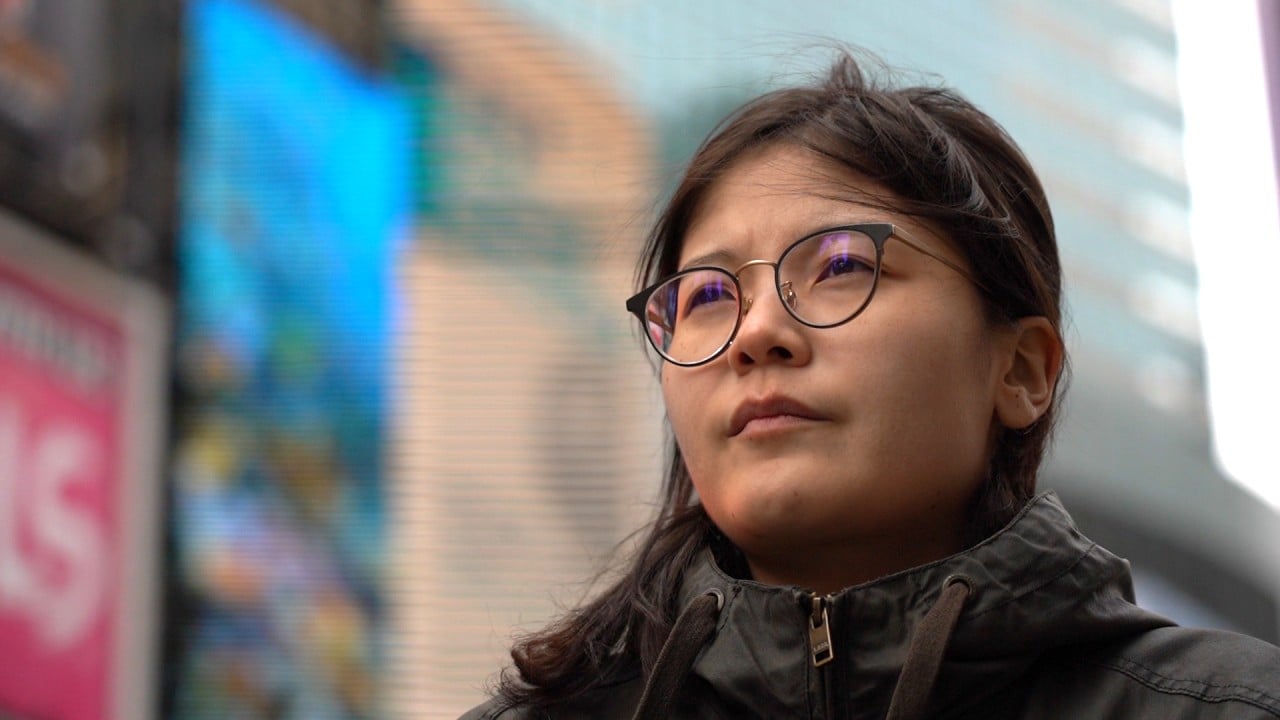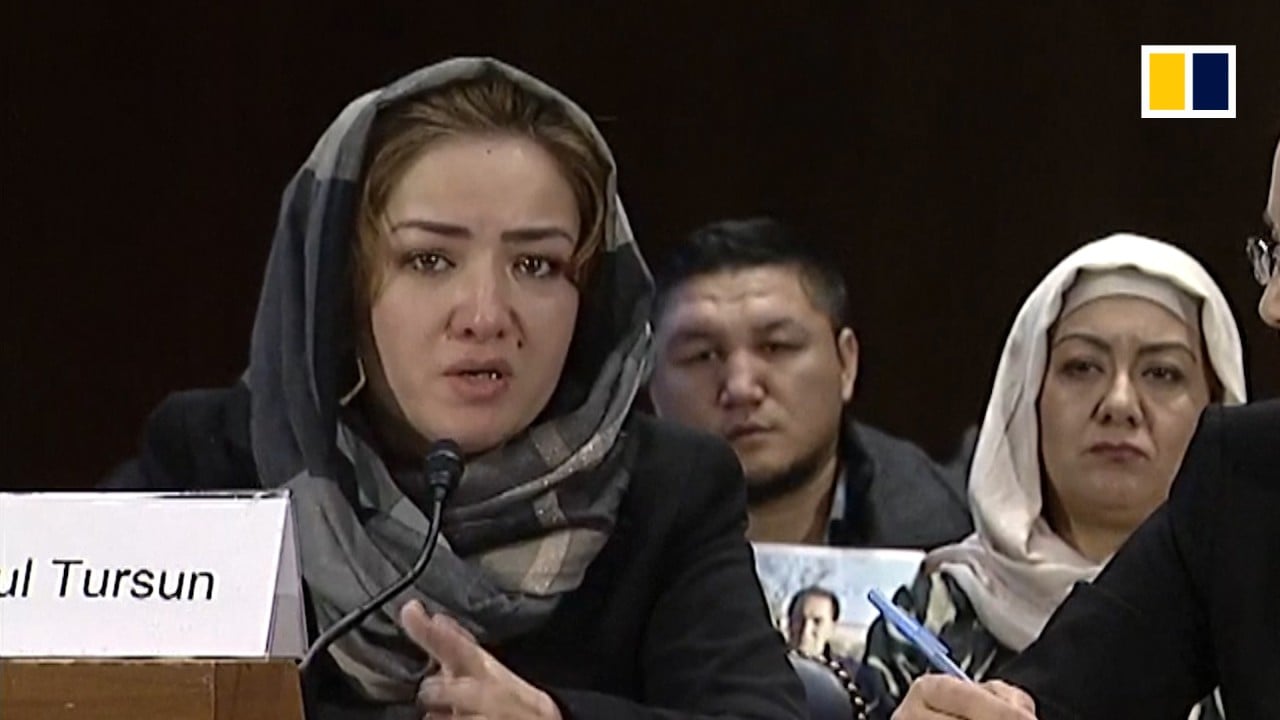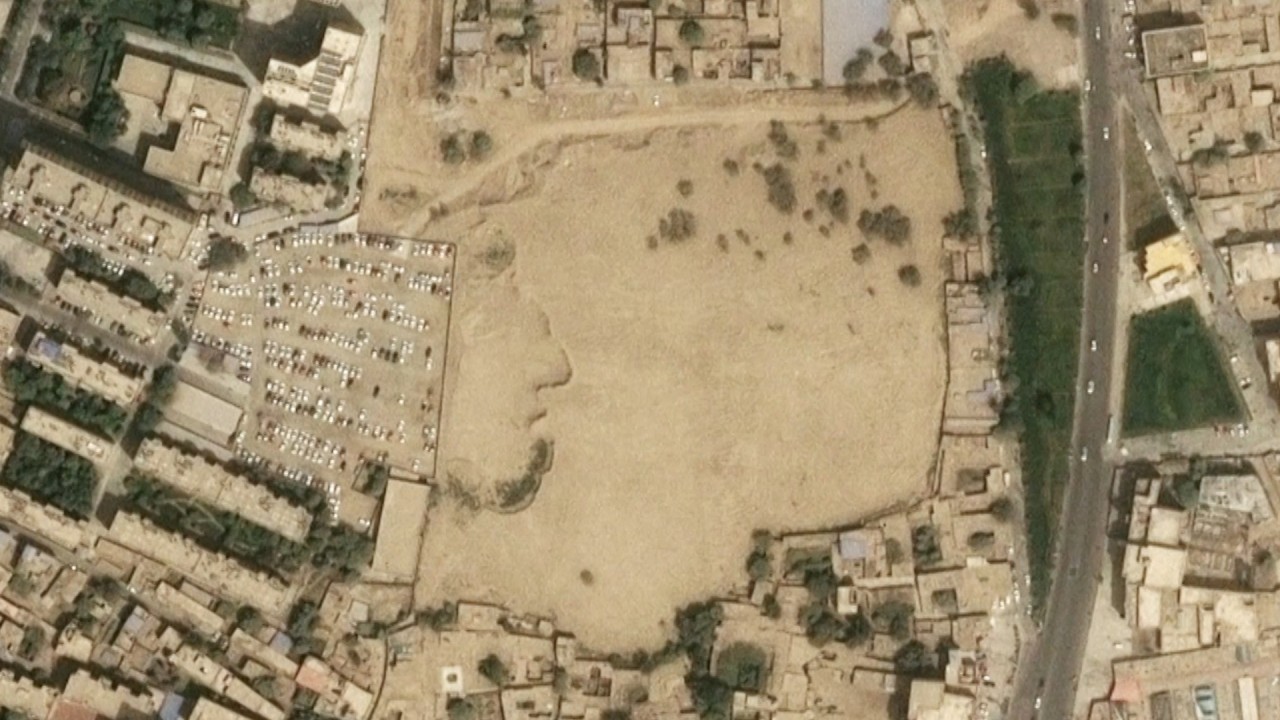
Uygur man awaits Morocco ruling as China seeks extradition after Interpol snub
- Case of Yidiresi Aishan has drawn ‘deep concern’ from UN human rights experts over his potential treatment if he is sent back to China
- Interpol cancelled an alert China requested for Aishan, who lives in Turkey and has published Uygur newspapers and collected accounts of abuses in Xinjiang

12:39
What happened to our parents? Uygur sisters seek answers
A letter from four of the UN Human Rights Council’s independent experts to the Moroccan government said: “We express our deep concern about the potential extradition of Mr Aishan to China, where he risks being subjected to torture and other ill-treatment, both for him being part of an ethnic and religious minority as well as the allegations of being affiliated with a terrorist organisation.”
The letter also asked Morocco to take note of its obligations under treaties such as the Convention Against Torture, which it ratified in 1993. The convention says that states should not deport or extradite a person towards another where they risk being subject to torture.
As of Thursday, the Moroccan authorities had not responded to the letter, which was sent on August 11 and made public on Monday, two months later.
The US state department last month hosted one of the regular high-level dialogues on human rights with Morocco. During the meeting, the US encouraged Morocco to fulfil its international obligations and refrain from forcibly returning to China people who were fleeing persecution or torture, the state department said.

02:08
Uygur woman describes torture in China’s Xinjiang ‘vocational training’ camps
The Inter-Parliamentary Alliance on China (IPAC), a cross-party group of lawmakers working on how democracies should approach China, in August released an open letter signed by 16 members calling for the Moroccan government to block Aishan’s extradition.
“I did raise it with the Moroccan ambassador here,” said Malcolm Byrne, an Irish senator who is also a co-chair of the IPAC. “It was acknowledged but there was no commitment on the issue. I remain concerned about any individuals extradited to China as to the chances that they will face a fair trial.”
Aishan’s plight also highlights the net that Beijing has cast globally, through signing extradition treaties and extrajudicial means, to rendition back to China – justifiably or not – fugitives, political dissidents and, increasingly, Uygur exiles.
Turkey, which has a 50,000-strong Uygur community and where Aishan was living with his wife and three children, has been deepening cooperation with China, including an extradition treaty that was ratified by Beijing last year and awaits Ankara’s approval.
Aishan was detained four times between 2014 and 2019 by Turkish authorities at Beijing’s request. He decided to leave Turkey and seek asylum in Europe after seeing a leaked Turkish government document in 2020 that referenced Chinese authorities’ request for legal action against seven Uygur exiles, including himself, his wife said.
“After he saw the document, he became very afraid, since it contained his name,” Wubuli said. “He thought that the Chinese government had struck a deal with the Turkish government to send him back.”
Another concern was that Aishan’s Chinese passport expires in 2022, at which point he will have no legal travel document, she said.
Chinese embassies have stopped renewing passports for Uygurs, and instead give them a one-way document to return home, where they would be likely to face arbitrary detention, according to research by the Uygur Human Rights Project.
Ahmad Talip, a Uygur who had lived in the United Arab Emirates for almost 10 years, has already suffered the fate that Aishan feared. Talip was summoned by Dubai police in February 2018 and extradited to China within weeks of his arrest, according to Talip’s wife Amannisa Abdullah.
The speed with which it happened shocked Abdullah after she received a document from a Dubai prosecutor confirming China’s extradition request but saying there was insufficient evidence. The prosecutor told the police to release Talip but the police told Abdullah that he had already been sent to China, she said.
To this day, Abdullah still does not know what happened to her husband or where he is, she said.
Abduweli Ayup, a dissident writer based in Norway, has been tracking forced deportations of Uygurs to China. He said that between 2017 and 2019, Egypt sent back 21, the UAE two including Talip, and Saudi Arabia two. Ayup also documented eight Uygurs who were deported to China from Turkey via a third country.

02:31
Satellite images show China has bulldozed Uygur burial sites in Xinjiang
There may be more, given that families were afraid that going public could endanger their loved ones, according to Ayup.
The Moroccan Ministry of Foreign Affairs and its embassy in China also did not respond to emailed requests for comment. The justice ministries in Turkey and UAE did not immediately respond to questions about Aishan and Talip.
Aishan’s legal representation in Morocco was secured by Safeguard Defenders, an NGO focusing on human rights in Asia.
Laura Harth, Safeguard Defenders’ campaign director, said that cases such as that of Aishan suggested that the 59 countries to have signed extradition treaties with China needed to reconsider them, because they could be used to repatriate dissidents and Uygur exiles.
The European Union considered suspending extradition treaties with China in response to Beijing’s electoral reform in Hong Kong, before the proposal was dropped in April over Hungary’s objection. Britain last month warned its nationals who had been critical of Beijing’s policies in Hong Kong to avoid visiting countries that have agreements with China.
“China’s global policing efforts are putting at risk everyone’s freedom of movement and freedom of speech,” Harth said. “And this needs to be stopped as soon as possible.”
She said that after several delays, Aishan’s next date with destiny would come on October 27, when the Moroccan court considers China’s request for his return.
Additional reporting by Kinling Lo

